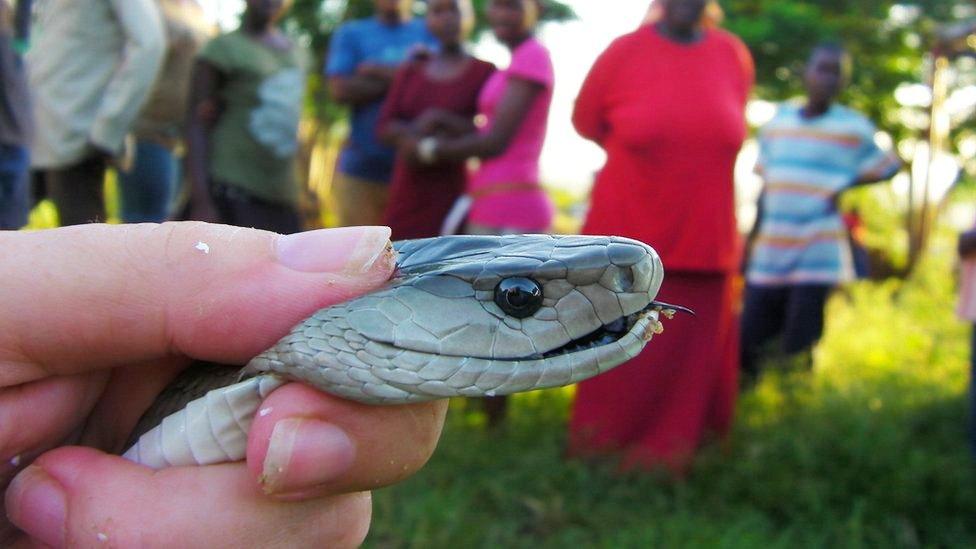Liverpool scientists saving lives with antivenom research
- Published
Liverpool scientists saving lives with antivenom research
In an unassuming building in Liverpool, a team are tasked with looking after 200 of the world's most deadly snakes.
Scientists at the Liverpool School of Tropical Medicine (LSTM) extract venom to help develop new drugs to prevent snakebite deaths around the world.
The LSTM was the first institution of its kind when it opened in 1898.
This year marks its 125th anniversary and scientists at the facility are still saving lives with antivenom research.
Each year, almost two million people are afflicted with poisonous snake bites and the head of the centre, Professor Nicholas Casewell, said about 125,000 to 130,000 people die as a result.
"We need to understand what is in venom, it's a complex mixture of lots of molecules that cause damage in people," he said.
"If you look at one venomous snake and compare it to another venomous snake, you have completely different toxins that cause completely different problems in people who bitten, some might cause someone to bleed, some might cause someone to suffer from paralysis."
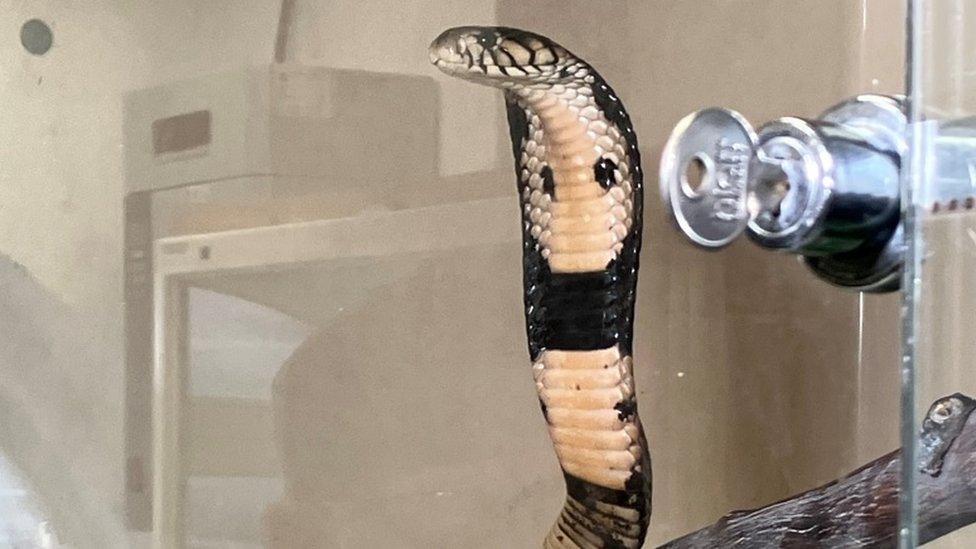
The Liverpool School of Tropical Medicine has about 200 deadly snakes
He said they wanted to use the venom to "produce the next generation of treatments".
Herpetologist Edward Crittenden, who is trained to handle snakes, told BBC North West Tonight that only a small amount of venom, approximately 200-300 milligrams, was extracted.
Although precautions are taken, Mr Crittenden's colleague Paul Rowley explained it was still a dangerous job and told how he had been in hospital three times in his 40-year career.
He said: "It's an occupational hazard. I mean I've been working with venomous snakes since the 1980s and my last bite was from a baby Western diamondback rattlesnake and that was 22 years ago.
"Unlike a lot of people in this industry, I've still got all my fingers, everything still works," he said.
"With antivenom, you can often make a good recovery. When it comes to the treatment of snakebite, we've got the world's best here in Liverpool."
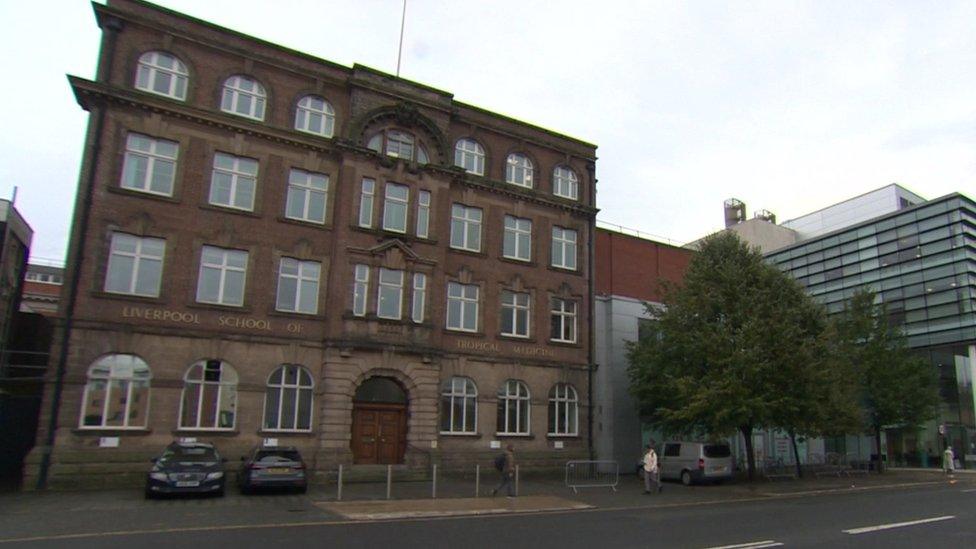
The institute opened in 1898 and was one the first schools of its kind
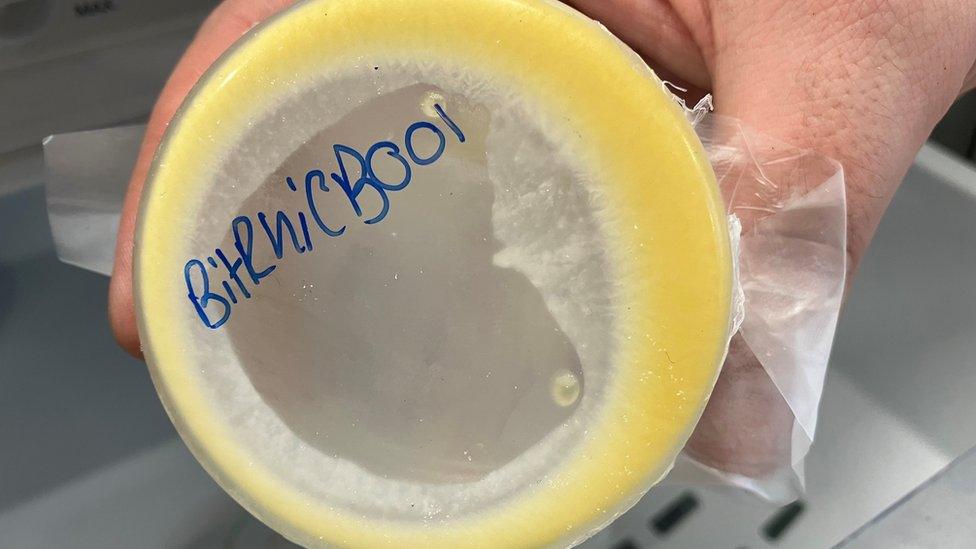
Once venom is extracted it is frozen and kept to be examined
All of the snakes in the LSTM collection have deadly venom, but only one has been a confirmed killer.
Mr Rowley recalled the notorious snake in a previous collection, he said: "It had been left in a hotel room and the Mafia used it to kill someone and then it was sent to the Bronx Zoo.
"They had some tissue samples collected from post mortem and we were able to confirm that it was a death from this species and then the animal itself came to us."
The team in Liverpool are currently working on quicker and cheaper antivenoms, such as oral tablets, stopping the need for hospital treatment and injections.
Prof Casewell said: "Tablets could be given in the community, very quickly after a snakebite to bridge that gap that it currently takes for someone to get to a hospital.
"But we are also looking to try and expand how broadly an antivenom might work to improve the number of different snakes it might be effective against as well, and of course to make them safer."

Why not follow BBC North West on Facebook, external, X, external and Instagram, external? You can also send story ideas to northwest.newsonline@bbc.co.uk, external
- Published20 July 2022
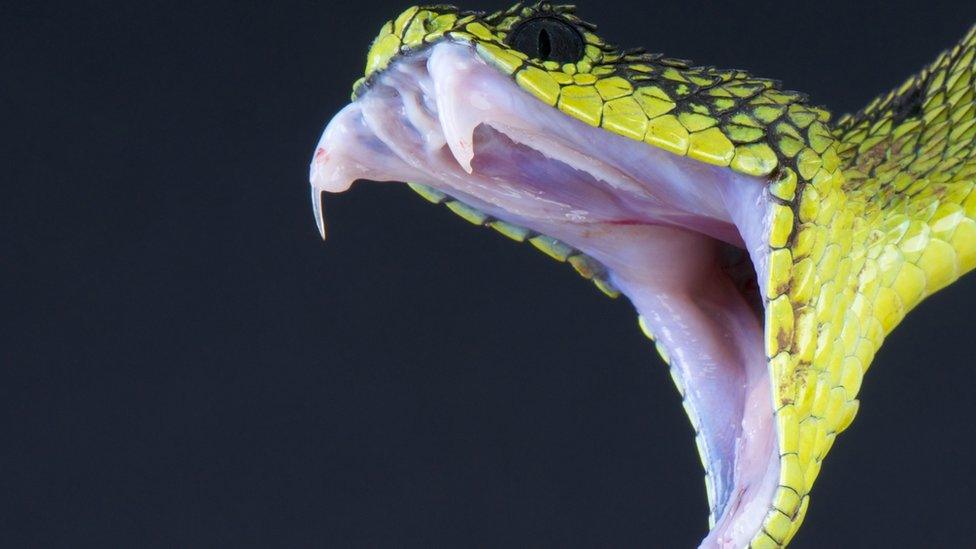
- Published16 May 2019
